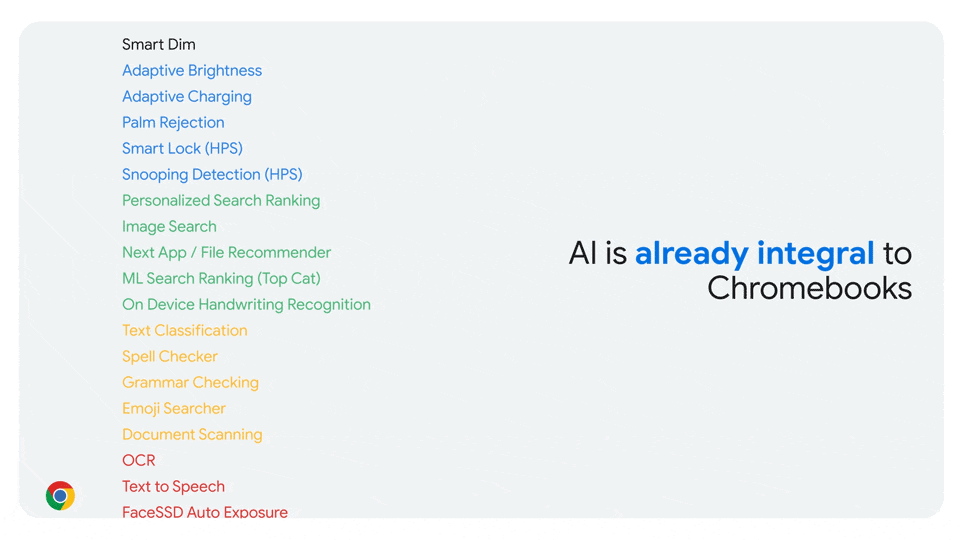AI-powered PCs appear to be the future, with tech giants including Intel, AMD, and Apple throwing their support behind neural processing unit (NPU)-equipped computers. However, I'm finding that it's Google’s ChromeOS AI tools and features that interest me the most.
Though the tech bigwigs are confident that many of the best computers and best laptops will be AI-powered soon, with Gartner predicting that 22% of all personal computers will be AI-powered in 2024, there’s a clear disconnect between this expectation and what the standard of AI PCs should be.
The price of admission to this technology could be in the thousands, making it a huge investment that buyers will have to make for a product that doesn't yet have a defined shape or a roadmap for future development.
Meanwhile, Google’s ChromeOS has already been using AI tools in the background for quite some time, including the launcher search bar, hardware acceleration, live captioning, palm rejection when using a stylus, and AI-optimized batteries that have enhanced battery life.
According to Google's VP of ChromeOS Product, UX, and Engineering, John Maletis, “With generative AI specifically, there are new opportunities to build helpful features.” He adds that Google doesn’t want to roll out new features for the sake of including them; instead, the company has been working on AI features that benefit the user in tangible ways.

Google Chromebook Plus has already seen some of these useful features and tools added to its line of laptops, including, says Maletis, “writing and reading assistants we previewed, Magic Eraser, and more,” many of which are tools from Google Gemini (formerly known as Google Bard) integrated into Google Workspace and other programs.
Recently, Google Gemini received an update that added generative AI for creating images, which is fully integrated into Google products and accessible with a right-click. And there are now some handy writing tools built into Google Workspace that, also with a right-click, allow users to type in a prompt to generate text. You can also “emoji-fy” said text, which adds relevant emoji scattered throughout the text.
Maletis says Google believes in “democratizing access to new technology, AI included. [And that] ChromeOS' natural advantages with the cloud help make a lot of this possible in this early stage of the technology.” And that’s something I can get behind.
As problematic as generative AI can be, many AI features, tools, and even programs can greatly benefit people. And those tools shouldn’t be locked behind expensive tech that the average person can’t afford. It’s imperative that good AI, at the very least, remains accessible to everyone.
from TechRadar - All the latest technology news https://ift.tt/O9onPpN

0 coment�rios: